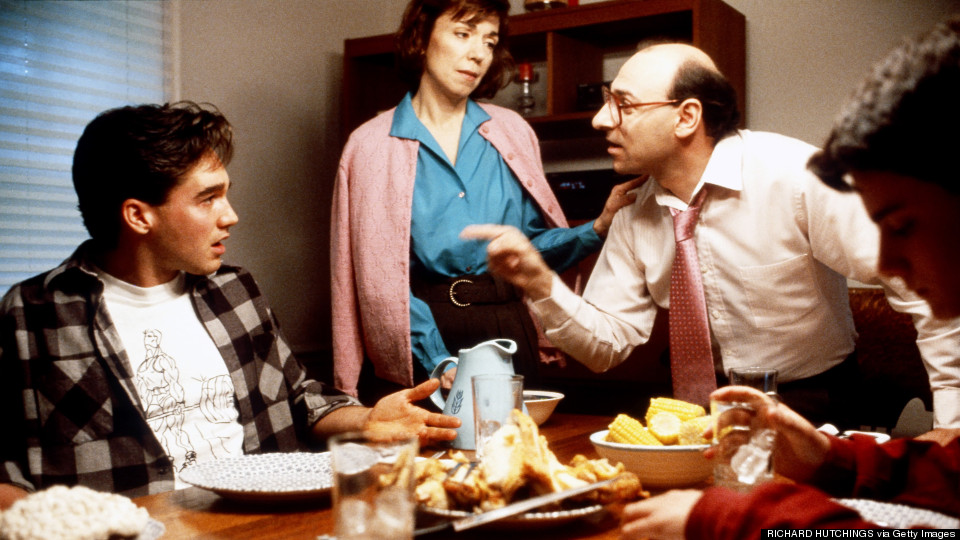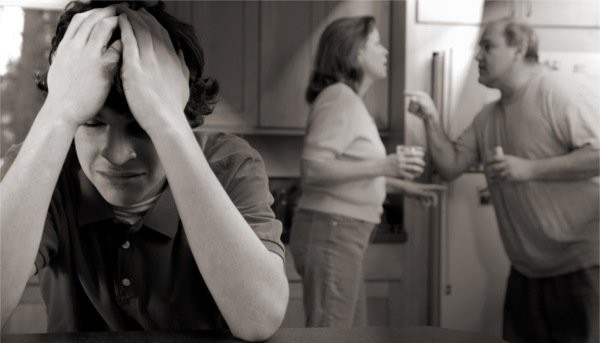The familial unit can be a complex one to navigate with each individual playing their own part. But for some families, there is an even greater problem than that. They have what is known as the “family scapegoat.”
Unrecognized or unacknowledged this position has far-reaching effects on the person who fills it – affecting their self-image, their relationships, and overall health.
This article will look at what being a family scapegoat means; its signs and symptoms as well. We hope that by drawing attention to this often ignored aspect of family dynamics we can help people understand themselves better when they find themselves in such roles.
What Is Family Scapegoat?
The phrase “family scapegoat” is used to describe a situation within a family in which one member bears the blame for all problems, conflicts, or tensions incurred.

Apart from this person being called the scapegoat, he or she becomes subject to criticism, accusations, and negativity regardless of their actual actions or contributions towards such matters.
Oftentimes, the scapegoat is accused of things they did not do and made answerable for dysfunctionalities within the family system. It is common for individuals in this position to be labeled as difficult, rebellious or problematic.
Such victims may suffer from low self-esteem, depression, anxiety, and feelings of worthlessness.
In families where there are poor communication channels coupled with unresolved conflicts and unhealthy relationships; scapegoating can serve as a means of shifting focus away from the real issues at hand.
Scapegoating can be viewed as an attempt by other members involved in blaming others so that they could express frustrations while avoiding dealing with what caused their distress especially when it comes down to families having weak communications among themselves plus living under unhealthy relationship conditions.
10 Symptoms Of Family Scapegoat You Should Know!
Determining if you or someone you know is being made the family scapegoat involves noticing several indications and recurring themes in family dynamics.

Here are a few main symptoms of family scapegoat to watch out for:
1. Consistent Blame:
Irrespective of whether you had anything to do with it or not, if you are the family scapegoat you will always carry the blame for family troubles.
This fault-finding is usually unfair and exaggerated leaving you annoyed, bitter, and puzzled about life. You may find it hard to vindicate yourself or plead innocence since your cries usually fall on deaf ears as other members ignore you.
2. Exclusion:
One of the symptoms of the family scapegoat is that you can be excluded from participating in any event, decision-making process or even discussions that revolve around the family thereby cementing your alienation within families.
Explicitly this exclusion may take the form of non – invitations for gatherings or trips while subtly it can be seen through failure to involve them in important talks which directly touch on their lives.
With time, this habit of shutting out others may deepen one’s sense of loneliness; self-worthlessness; and rejection hence making you feel detached more than ever before from other relatives who should have been supporting systems for them as well as sources of love and care.
3. NegativeTag
They tag you as troublemakers, black sheep or problem children who at times are regarded as worthless and this may affect your self-esteem or identity. These labels become a part of the scapegoat; hence, they affect his understanding about himself and where he fits in the family.
You might begin to see yourself as faulty or useless, thus creating feelings like guilt, disbelief in yourself, and incompetence. Such negative tags over a long period will destroy any sense of worth that one has left as well as contribute towards having low regard for oneself.
4. Mental Disturbance
Depression, anxiety disorders (ADs), low self-esteem which makes someone feel different from others around them, and alienation are some emotional distress signals shown by a family scapegoat child.
Continuous criticism directed towards him/her only serves to worsen their mental health situation within such an environment.
Sometimes one may find it hard to cope with the intense sadness that comes with hopelessness leading to withdrawal from people in a bid not to be hurt again.
Otherwise unattended to these emotional disturbances grow severe over time thereby affecting every sphere of life including relationships held dearer by such persons with others; work or career development opportunities available for them among others; general living standards achieved etcetera
5. Identifying Issues:
Families are known for attributing their own unsettled disputes, anxieties, or negative emotions to the family scapegoat as they hold them accountable for things they did not do.
This occurs when members of a family either don’t want to or can’t confront their problems head-on hence transferring these issues onto you so that they don’t have to take responsibility for their actions or feel uncomfortable about themselves.
Therefore, an individual may find themselves being singled out and blamed for some matter within a family that is totally unrelated to them; thus adding fuel to feelings like unfairness, anger, and powerlessness.
6. Hypocrisy:
You might notice that while other relatives get pardoned or even praised for committing the same offense, you will be judged more strictly and punished unfairly.
In such cases where there exist double standards this kind of unfairness within families makes people feel like they are treated unequally because one person’s wrong is another person’s right hence making it difficult for anyone except yourself who always has the shortest stick.
It may seem impossible to win approval from your parents or siblings regardless of how much effort you put into achieving this goal but these individuals will never appreciate anything done by you thereby causing resentment on your side which eventually leads to hatred being developed towards them.
7. Alienation:
One of the symptoms of family scapegoat is that you can feel alienated from the family if other members do not support or validate you, it might lead to feelings of loneliness and being left alone.

This isolation is not only social but also emotional, because as a scapegoat in the family, you may find no meaningful relationship with anyone else and even fail to be accepted or belong in your own family.
You may feel like you do not have anyone whom you can lean on for help or go to when seeking understanding thus making you more isolated hence deepening despair.
8. Role Shuffling:
To gain recognition or love from their families, scapegoats may take up different positions such as caregiving and peacemaking among others just so they can please everyone while avoiding conflicts at the same time.
This reversal of roles could serve as a strategy for gaining control over one’s life amidst all these unhealthy family systems that surround us.
On the other hand, this act may drain you emotionally since it involves putting first interests and feelings of other people before yours which leads to neglecting personal emotional needs thereby affecting your mental health too.
9. Physical Symptoms:
The stress of being the family scapegoat can show itself in headaches, digestive problems, and other stress-related physical complaints.
They are constantly under pressure to perform and meet expectations but this also causes emotional turmoil within themselves as well as with others around them which can manifest through different body parts showing signs that it is not at ease.
The warning signs for such conditions are usually what we see on our bodies when we have poor mental or emotional health as a result of the roles played by us among relatives who share common ancestors; thus indicating some kind of intervention needs to be taken so that one’s mind is cared about once more than ever before.
10. Behavioral Issues:
You may display behavioral difficulties like rebellion, acting out, substance use or self-harm as an attempt to deal with your distress.
These behaviors could represent pent-up feelings finding release; they might be efforts at independence or ways of deadening oneself against feeling too much pain about one’s condition.
In addition, however, you can also be damaging and self-destructive towards the scapegoat thereby creating further obstacles for him/her while trying to overcome his/her own challenges.
To tackle these kinds of conduct we must identify what is causing them by looking into why someone feels so miserable that such acts become necessary for survival
Then equip this individual with appropriate resources aimed at helping him/her manage life better in the future without resorting to unhealthy means only.
Recognizing these symptoms could serve as the beginning point toward dealing with destructive dynamics brought about by scapegoating within families which should lead people into seeking assistance while striving to overcome these hurdles together.
How To Cope With Being A Family Scapegoat?
Learning how to cope with being a family scapegoat can be challenging, but some strategies can help you navigate this difficult situation:

1. Seek Support:
Reach out to trusted friends, other family members, or a therapist who can provide emotional support and validation. Having someone to talk to who understands your situation can help you feel less alone and more empowered to cope with the challenges you’re facing.
2. Set Boundaries:
Establish clear boundaries with family members to protect yourself from further harm. This may involve limiting your interactions with toxic family members, refusing to accept blame for issues that are not your fault, and prioritizing your own well-being and needs.
3. Practice Self-Care:
Take care of yourself physically, emotionally, and mentally when you are trying to cope with being a family scapegoat.
Engage in activities that bring you joy and relaxation, such as exercise, hobbies, meditation, or spending time with supportive friends. Prioritize self-care practices that help you manage stress and maintain your overall well-being.
4. Challenge Negative Beliefs:
Challenge negative beliefs about yourself that have been reinforced by being the family scapegoat. Remind yourself that you are not responsible for the dysfunctional dynamics within your family and that you are worthy of love, respect, and acceptance just as you are.
5. Build a Support Network:
Cultivate relationships outside of your family that provide you with love, acceptance, and validation. Surround yourself with people who appreciate you for who you are and who uplift and empower you to be your best self.
Remember that to cope with being a family scapegoat is a process, and it’s okay to seek help and support along the way. You deserve to be treated with respect, dignity, and compassion, both within your family and in all areas of your life.
A Word From Mind Family
Being the family scapegoat is a deeply challenging experience that can have profound effects on your mental and emotional well-being.
If you find yourself in this role, please know that you are not alone. We understand the pain and frustration you may be feeling, and we want to offer our support and encouragement.
Coping with being a family scapegoat is a journey, and it may take time to heal from the wounds inflicted by this role.
Be patient with yourself and know that it’s okay to seek help and support as you navigate this difficult situation. You are worthy of happiness, peace, and fulfillment, both within your family and in all aspects of your life.
Take care of yourself, and remember that brighter days lie ahead. You have the strength and resilience to overcome this challenge and create a life that is filled with love, joy, and positivity. We believe in you, and we are here to support you every step of the way.
Frequently Asked Questions (FAQs)
1. What is family scapegoat?
Family scapegoat is a role where one member is unfairly blamed for family issues, regardless of their actual responsibility.
2. What are the symptoms of family scapegoat?
Symptoms include consistent blame, exclusion, negative labels, emotional distress, and physical symptoms.
3. How to cope with being a family scapegoat?
Coping involves seeking support, setting boundaries, practicing self-care, challenging negative beliefs, and building a support network.












Leave a Reply